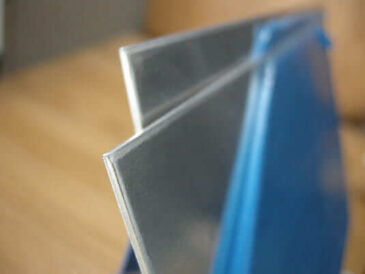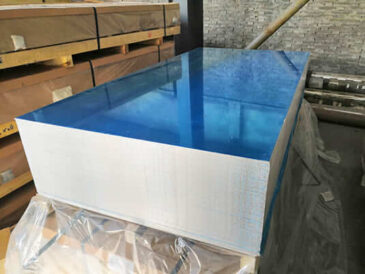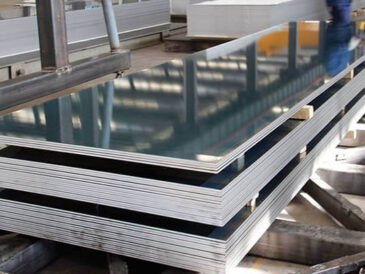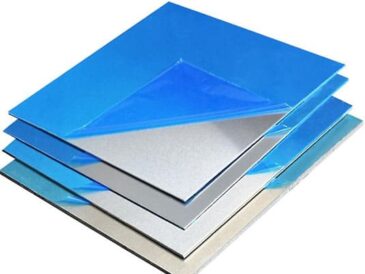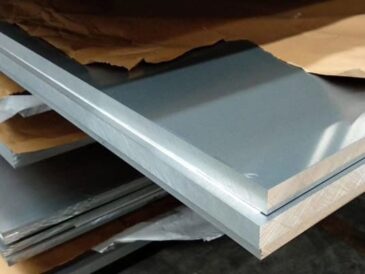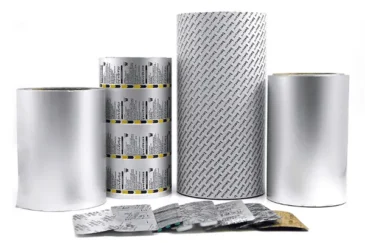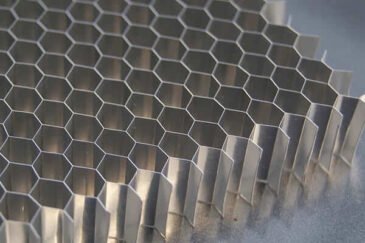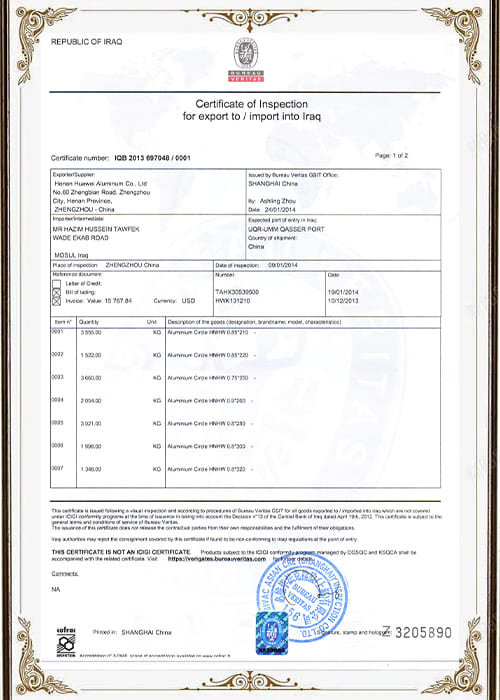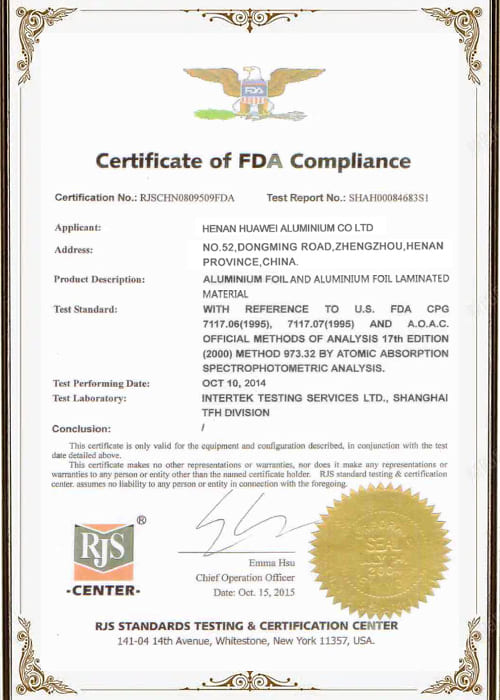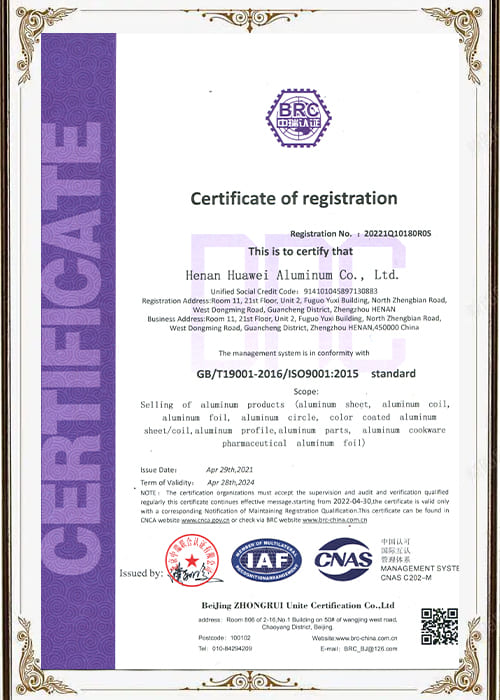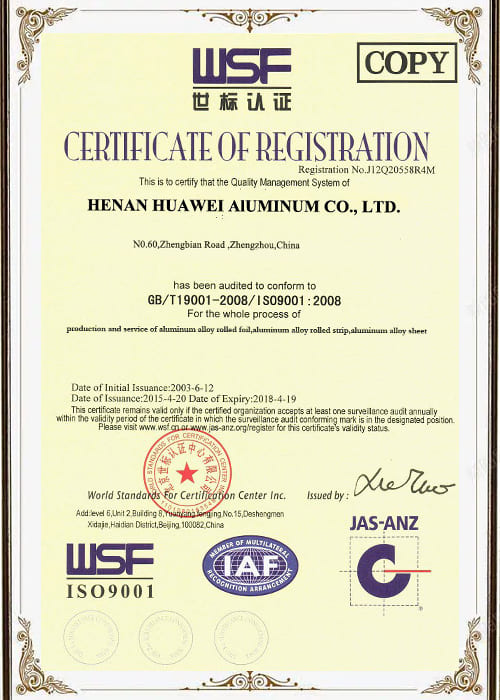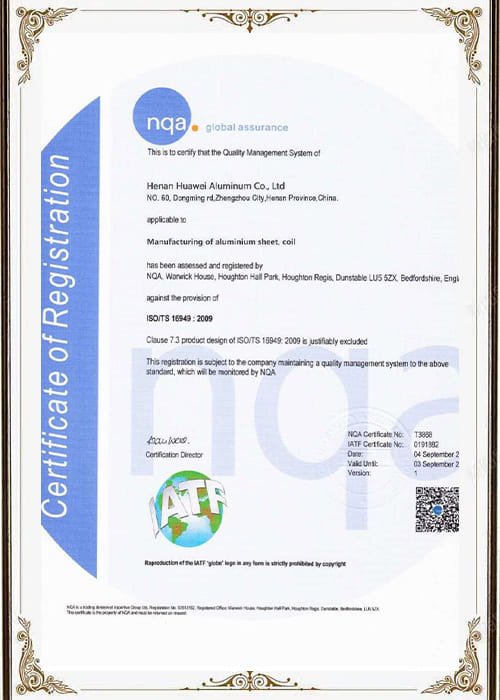Aluminum alloys are classified based on heat treatment properties
1181 Views 2024-04-07 07:00:42
Common aluminum alloy series
Aluminum alloy is an alloy material formed by adding aluminum as the main component and adding appropriate amounts of other alloying elements. Aluminum itself is soft and has limited strength in its pure state. However, by combining with other metal or non-metal elements (such as copper, magnesium, manganese, silicon, zinc, lithium, etc.), it can create a series of alloy materials with a wide range of performance characteristics.
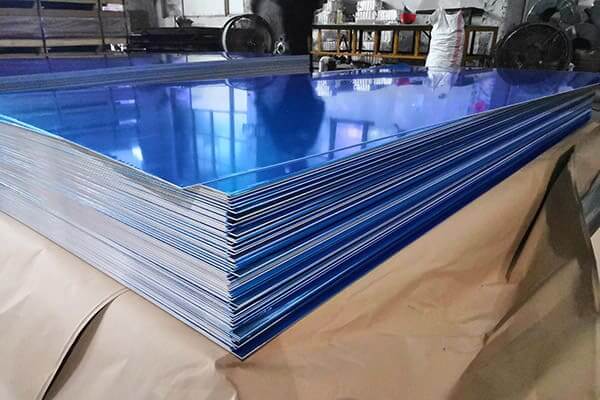
Aluminum alloys are classified based on heat treatment properties
Aluminum alloys can be divided into the following categories according to their chemical composition
1000 series aluminum alloy
1000 series aluminum alloy is a pure aluminum series in the aluminum alloy family. Its main feature is that the aluminum content is very high, usually with purity above 99.00% to 99.5%, such as the common 1050, 1060 and 1100 aluminum alloy. This series of aluminum alloys contains no or only a very small amount of alloying elements (such as copper, manganese, magnesium, silicon, etc.)

1000 series aluminum alloy sheet
2000 series aluminum alloy
The 2000 series aluminum alloy is one of a series of aluminum alloys with excellent strength. The main alloying element is copper. This alloy is often used in high-strength applications such as structural members and aircraft components in the aerospace industry. 2000 series aluminum alloy has good processing performance and corrosion resistance, and is suitable for use in various environmental conditions.
3000 series aluminum alloy
3000 series aluminum alloy is a type of aluminum-manganese alloy, in which the main alloying element is manganese. This type of alloy usually has good corrosion resistance and processing properties, and is suitable for manufacturing a variety of products requiring corrosion resistance, such as food packaging, kitchen utensils, auto parts, etc. 3000 series aluminum alloys are also commonly used in fields such as construction, ships, and chemical equipment. They are characterized by being lightweight, easy to process, corrosion-resistant, and relatively low-priced.

3000 series aluminum alloy coil
5000 series aluminum alloy
5000 series aluminum alloy is a type of aluminum-magnesium alloy with good corrosion resistance, in which the main alloy element is magnesium. This alloy has high strength and excellent corrosion resistance, performing well in seawater and humid environments. 5000 series aluminum alloys are commonly used in the manufacture of products requiring high corrosion resistance such as ships, auto parts, railway vehicles, tank trucks and pressure vessels. In addition, 5000 series aluminum alloys are also commonly used in the aerospace field to manufacture aircraft parts.
6000 series aluminum alloy
6000 series aluminum alloy is a common type of aluminum-magnesium-silicon alloy, which usually contains elements such as aluminum, magnesium and silicon. This alloy has good strength and corrosion resistance, as well as excellent processing properties, and can be used to manufacture products of various complex shapes through various forms of processing (such as extrusion, casting, rolling, etc.). 6000 series aluminum alloys are widely used in a variety of fields, including construction, aerospace, automotive, electronics and industrial equipment. This alloy is commonly used in the construction industry to make products such as window frames, door frames, curtain walls and aluminum alloy pipes, in the automotive industry to make body structural parts and auto parts, and in the aerospace field to make aircraft structural parts.
7000 series aluminum alloy
7000 series aluminum alloy is an aluminum alloy with zinc (Zn) as the main alloy element. It is also called superhard aluminum or aircraft alloy. This alloy is a heat-treatable strengthened aluminum alloy with good thermal deformation properties and a wide quenching range. Under appropriate heat treatment conditions, higher strength can be obtained. In addition, it has good welding performance and generally good corrosion resistance. It is a high-strength weldable aluminum alloy.

7075 aluminum alloys for airplane
7000 series aluminum alloys, especially 7075, mainly contain aluminum, magnesium, zinc and copper. They are heat-treatable alloys and are superhard aluminum alloys with good wear resistance. This alloy has good plasticity in the freshly quenched and annealed states and can be strengthened by heat treatment. Usually applied under quenching and artificial aging, which can obtain higher strength than ordinary duralumin, but lower plasticity. The alloy has good spot welding properties, poor gas welding, and poor machinability after annealing.
8000 series aluminum alloy
8000 series aluminum alloy is a new type of aluminum alloy, which is currently less common in practical applications. This alloy often contains other elements such as copper, zinc, manganese and nickel to enhance its specific properties. 8000 series aluminum alloy has good strength and corrosion resistance, as well as good processing performance, and is suitable for various processing techniques. Because 8000 series aluminum alloys are relatively new, their application areas and properties may change as research and development proceeds.

8011 aluminum foil
Aluminum alloys are classified based on heat treatment properties
Different series of aluminum alloys have different properties. Today, we only classify the above series of aluminum alloys in terms of heat treatment.
Aluminum alloy materials can be divided into two categories: heat-treatable alloys and non-heat-treatable alloys:
Non-heat treatable aluminum alloy
Non-heat-treatable aluminum alloys refer to a type of aluminum alloy that cannot significantly improve its mechanical properties (such as strength and hardness) through traditional heat treatment methods (such as solution treatment and aging treatment). The characteristic of this type of aluminum alloy is that its solid solution structure does not undergo obvious phase changes during the heating process, so its microstructure cannot be changed through heat treatment to achieve strengthening.
1XXX series pure aluminum (such as 1050, 1100, etc.): mainly composed of higher purity aluminum, containing trace amounts of impurity elements, relatively low strength, but has good electrical conductivity, thermal conductivity, good formability and corrosion resistance sex.
3XXX series aluminum-manganese (Mn) alloys (such as 3003, 3004, etc.): The addition of manganese improves the hardness and corrosion resistance of aluminum alloys, but these alloys still do not have the ability to be strengthened by heat treatment and mainly rely on cold work hardening. Improve its mechanical properties.
5XXX series aluminum-magnesium (Mg) alloys (such as 5052, 5083, etc.): The addition of magnesium enhances the tensile strength and corrosion resistance of aluminum alloys, especially in marine environments. It is also not suitable for heat treatment strengthening.
Additional hardening of these alloys is accomplished by cold working (strain hardening).
Non-heat treatable alloys are ductile and moderately strong (depending on the concentration of alloying elements).
The alloy is supplied in O temper (annealed) or H temper (varying degrees of cold working).
Non-heat treatable alloys are used in the manufacture of deep drawn parts, sheet, foil, tube, wire, extruded parts, pressure vessels.
Heat treatable aluminum alloy
Heat-treatable strengthened aluminum alloy is a type of aluminum alloy material that can significantly improve its mechanical properties (such as strength, hardness, toughness) after specific heat treatment procedures. This type of aluminum alloy changes the internal microstructure of the alloy through heat treatment processes, mainly solution treatment and aging treatment, thereby achieving strengthening.
Common heat-treatable strengthened aluminum alloy series include:
2XXX series duralumin (such as 2024, 2014, etc., containing copper and magnesium)
6XXX series aluminum alloys (such as 6061, 6082, etc., mainly containing magnesium and silicon, sometimes also containing small amounts of copper and manganese)
7XXX series superhard aluminum (such as 7075, 7050, etc., in addition to magnesium, it also contains zinc and copper)
Since the solubility of these elements (or intermetallic compounds formed from these elements) in solid aluminum depends on temperature, the combined alloy can be hardened by a heat treatment called precipitation hardening (age hardening).
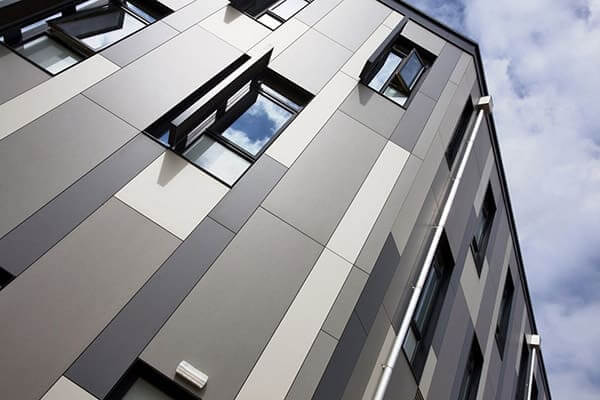
Non-heat treatable aluminum alloy for construction
Precipitation Hardening (Age Hardening) – Strengthening by precipitation of second phase fine particles from a supersaturated solid solution.
Precipitation hardening heat treatment consists of the following stages:
Solution treatment
At this stage a part is heated to a temperature above the solvus temperature in order to dissolve the second phase in the solid solution.
The part is held at this temperature for a time varying from 1hour to 20 hrs. until the dissolving has been accomplished.
The temperature and the soaking time of solution treatment should not be too high to prevent excessive growth of the grains.
Quenching
Quenching is carried out in water, water-air mixture or sometimes in air.
Object of the quenching operation is obtaining supersaturation solid solution at room temperature.
Since the second phase retains dissolved at this stage, hardness of the quenched alloy is lower than after age precipitation, however higher than hardness of the alloy in annealedstate.
Aging
Depending on the temperature at which this operation is carried out aging may be artificial or natural.
1. Artificial aging.
At this stage the part is heated up to a temperature below the solvus temperature, followed by soaking for a time varying between 2 to 20 hours.
The soaking time depends on the aging temperature (the higher the temperature, the lower the soaking time).
The aging temperature and the soaking time are also determined by the desired resulted combination of the strength and ductility of the alloy.
Too high aging temperature and time result in overaging – decrease of the strength and increase of ductility.
2. Natural aging
Natural aging is conducted at room temperature and it takes a relatively long period of time (from several days to several weeks).
The alloys from this group are supplied either in O condition (annealed) or in T condition (heat treated by age hardening).
Heat-treatable alloys are used for manufacturing aircraft parts and structures, screw machine parts, automotive body panels, welded structures.

